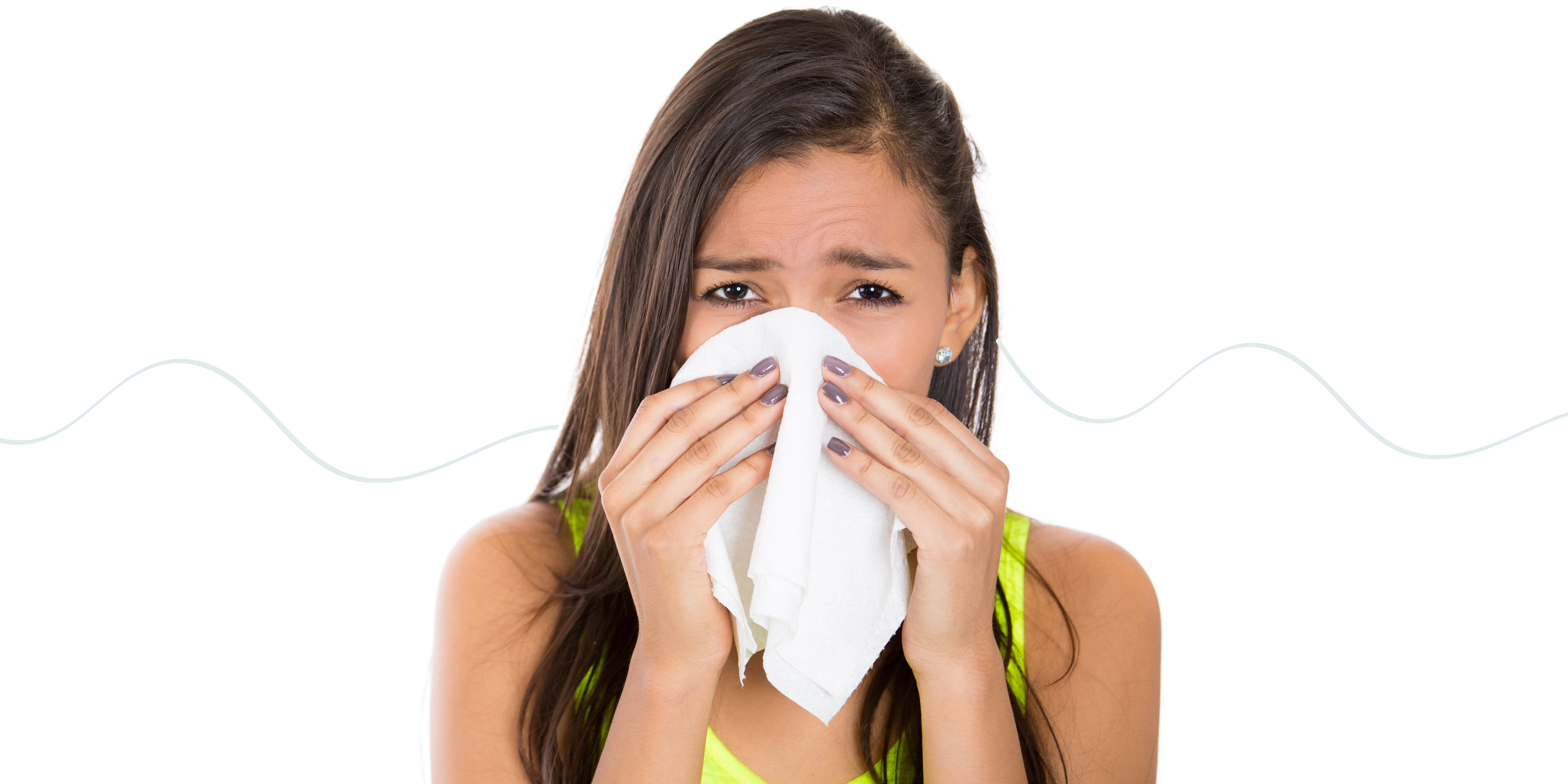While spring welcomes fresh air like no other, it’s also the start of less-than-desirable allergy season. Maybe you’ve noticed it in the air. Perhaps you’ve had a stuffy or runny nose, watery eyes, and sneezing fits. Well, you aren’t alone. It’s estimated that 10-40% of people suffer from annual or ongoing allergies.
So, what can you do about it? In this article, we dig into why allergies happen in the first place, common types of allergies, prevention tips, and home remedies.
Why Causes Allergies?
Allergies are caused by the immune system's overreaction to substances that are usually harmless, such as pollen, pet dander, certain foods, or dust mites. When a person with an allergy encounters one of these allergens, their immune system perceives it as a threat and releases chemicals like histamines to combat the supposed invader. In turn, this leads to common allergy symptoms, such as sneezing, itching, swelling, and various respiratory difficulties.
It’s important to note, however, that genetics can also play a role here. If your parents have certain allergies, you are more likely to have them, too.
Common Types of Allergies
Allergies come in many forms, impacting millions worldwide. Here are a few of the most common types.
- Hay Fever (Allergic Rhinitis): Hay fever is triggered by pollen from trees, grasses, and weeds and is characterized by sneezing, congestion, runny nose, and itchy eyes.
- Skin Allergies: These manifest as hives, itching, or eczema when the skin comes into contact with allergens like certain metals, fragrances, or plant substances.
- Food Allergies: Reactions can range from mild to severe, involving hives, digestive problems, or anaphylaxis. Common triggers include nuts (like peanuts), shellfish, dairy, and eggs.
- Insect Sting Allergies: Stings from bees, wasps, hornets, or yellow jackets can cause swelling, redness, and in severe cases, anaphylaxis.
- Pet Allergies: Typically triggered by proteins in the pet's skin cells, urine, or saliva, leading to respiratory symptoms or skin reactions.
- Drug Allergies: Reactions to medications can vary widely, from mild skin rashes to life-threatening anaphylaxis. Penicillin and other antibiotics are common culprits.
Allergies may further exacerbate and contribute to certain chronic conditions. For example, allergic asthma is a common type of asthma where allergens trigger asthma symptoms, such as wheezing, shortness of breath, chest tightness, and coughing. When the body comes into contact with specific allergies, such as pollen, dust mites, mold spores, pet dander, and more, the airways become inflamed and narrowed. For some, this can be a fatal condition if it’s not addressed appropriately or certain safety measures aren’t taken.
8 Allergy Tips & Home Remedies
Prevention is always better than trying to treat an ailment after onset. And allergies are no exception! So, how can you prevent allergies from happening altogether? And what can you do to support your body when allergies strike?
1. Keep Your Environment Clean
Dust mites, pet dander, and pollen can accumulate in your living space, triggering allergy symptoms. Yet, regular cleaning, using HEPA filters in your vacuum cleaner and air purifier, and washing bedding in hot water can help reduce allergens. In particular, keeping an air purifier in your bedroom can help at night when you’re potentially more likely to feel congested.
2. Stay Indoors During High Pollen Counts
If pollen is a trigger, keep windows closed during high pollen seasons and stay indoors on dry, windy days when pollen counts are highest.
3. Shower Before Bed
Surprisingly, pollen and other material can collect on your skin and hair throughout the day. Thus, taking a shower before going to bed can help reduce night-time symptoms and prevent groggy mornings.
4. Manage Pet Dander
If you're allergic to pets, inevitably, not having a pet is recommended. If you’re around such animals, your allergies can best be managed by avoiding contact with the animal and washing your hands frequently. You’ll also want to avoid touching your face or eyes!
5. Use Saline Nasal Rinse
Using a saline solution to rinse your nasal passages can help relieve nasal congestion and remove allergens from your nostrils. This can be a great method to reduce phlegm and mucus naturally.
6. Inhale Hot Steam
Inhaling steam from a hot shower or a bowl of boiling water can help soothe irritated nasal passages and lungs.
7. Eat Local Honey
Consuming local honey may help your body adapt to the allergens in your environment, potentially reducing your allergic response over time. On top of this, certain herbal teas, like ginger, peppermint, or green tea, contain natural antihistamines and anti-inflammatory properties that can help alleviate symptoms.
8. Use Supplements
For filling the gaps in your diet, try adding supplements. Some great examples include Life Nutrition’s Advanced Probiotics for good gut health (which can support immunity) or Deep Sea Fish Oil to help fight inflammation.
.png)
.png)





Comment